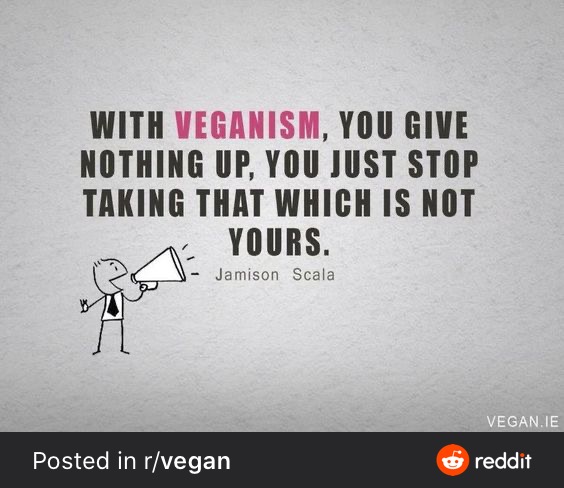Survivors of an International Buddhist Cult Share Their Stories by MATTHEW REMSKI
This is an article about Shambhala and Chogyam Trungpa.
"Trungpa’s personal doctor would cite liver disease from alcohol abuse as the cause of death."
"Trungpa’s kingdom presents less like an “enlightened society” than it does a longitudinal study of intergenerational abuse and of how thin the line between religion and cult can be."
"In a series of 1983 sermons, he compared the attainment of spiritual wisdom to the act of rape."
"...according to Hays, her job as a “spiritual wife” (traditionally a consort for ritualized sexual meditations) involved offering Trungpa bumps of cocaine, which she remembers his lieutenants pretending was either a secret ritual substance or vitamin D."
"“What Trungpa did,” says Liz Craig, “was create an environment for emotional and sexual harm in which nobody was accountable for their actions.” Craig worked as a nanny in Trungpa’s household. “If he’d been publicly violent, it would have been easier to identify him as harmful and Shambhala as a cult.”"
"Michal Bandac, now living in Germany, says that, in the 1980s, Shambhala adults introduced him to cocaine use when he was twelve."
"There was statutory rape going on all over the place.”
"Thomas Rich, had been having unprotected sex with an unknown number of men and women while being HIV positive."
"The legal entities that held Shambhala’s assets were dissolved to avoid liability."
"Between 1999 and 2018, Mipham’s restructuring helped Shambhala’s global membership grow from under 7,000 to 14,000. Members participated in programs and training at outposts around the world, drawing an annual revenue of $18 million (US) in North America alone."
"Mipham also moved to shield what were reputed to be the most mystical elements of his father’s teaching content behind a pay-wall."
"Through the summer and fall of 2017, stories about similar abuse ripped into other spiritual communities. In July, eight former attendants of the late Sogyal Rinpoche, a celebrated Buddhist teacher and the author of the bestselling Tibetan Book of Living and Dying, published an open letter describing decades of physical, sexual, and financial abuse by the religious leader."
I've quoted so much, read the article to get the rest. The fallout, and the inevitable copying of behavior, and how the survivors gained confidence to speak their truths. The efforts by Shambhala to get out from under these legacies is scary too. It will be hard to survive for a lineage with such a history. I don't have any books by him, but if I did, I would get rid of them. I visited the center once for a Wesak celebration. I would never enter a center now. There exist enough centers without such a history.
You could compare the legacy of Sangharakshita and the TBC with Chogyam Trungpa and Shambhala. Sangharakshita did experiment with sex, and there were others who took his example and copied it, throwing off the Christian taboo of sexuality. I feel like this cultic strain was snuffed out, and the organization talked about the Guardian article quite robustly.
There was no substance abuse by Sangharakshita that I'm aware of. Supposedly he quite drinking wine with meals when he saw how much land was devoted to wine on his travels. The children in the organization were not groomed for anything to my knowledge. I remember seeing an article shaming a minister in the government for being a member and calling it a cult. There is the FWBO files, FWBO being the old name of the TBC.
I am not aware of any cultic behaviors by the council that took over from Subhuti. I'm not aware of any accusations about Subhuti. Feel free to comment with information.
I do know a fair amount of members resigned from the TBC as a result of reflecting on some of the revelations. The majority remained. I see online that more and more people are being ordained. There is no evidence that the TBC and order have been hit financially.
I feel like Sangharakshita's experiments with sexuality as a founder of an order, were more like Lama Surya Das. He did them, later people expressed they were not all positive, and they regretted them, and with Das, he got married, and with Sangharakshita he went celibate.
Reading about other sanghas and their struggles to grapple with the legacy of their former charismatic founders makes me sad. It seems to be a stage many new sanghas need to go through in America. Charismatic people are flawed and people who are not see as traditionally charismatic can seem so when they are the head of an organization. I tend to feel that TBC can survive. I wish them well. I'll keep my books and go on retreats at their centers. I feel like they have grown up and survived their scandal.
Recommended is Sex and the Spiritual Teacher by Scott Edelstein. You never have to do anything you don't want to do and "spiritual teacher" isn't a license to rape. "Spirituality" isn't a license to forget common sense. I would say that consensual sex with a teacher needs to be closely monitored.
If you want to be completely safe, I'd say a Theravadan sangha has monks that have a vow of chastity, and that while I'm sure I could find a Theravadan sangha that had a sex scandal, I would argue that they are the safest if you are concerned about being sexually exploited.
I used to scoff at the idea that traditional sanghas with lineages, because I think lineage is a fairy tale. And they have less sexual misconduct. I believe that now. I think that's proven by the data.
I have no idea about the IMS householder Theravadan movement. I bet you could find someone who felt exploited by a teacher somewhere along the line, and Against The Stream and Noah Levine has come under scrutiny. The Dharma Bums of NYC and Josh Korda doesn't seem to be effected by it, to my knowledge. Just know there is a difference between Theravadan and IMS, though IMS gets its inspiration from Theravadan.
Reginald Ray is another American founder of a sangha, The Dharma Ocean, which came out of Shambhala, and has accusations of abuse.
I have read Shoes Outside The Door about Richard Baker, and The Buddha from Brooklyn about Jetsunma Ahkon Lhamo.
I write this out of love for Buddhism, not to gossip negatively, but for the long term support of Buddhism in America. This is a painful growing process. In the end, I don't think meditating all the time is very sexy, and a good sangha will be less sexually oriented, even if they are trying to shake off Christian conditioning.
I am not free from sexual misconduct throughout my more than half a century of life. I am deeply sorry and regretful. I think about my misconduct every day. I can only hope to move forward every day trying to live the opposite of misconduct, which is to live with simplicity, stillness and contentment.
More links
The first response as of today on Reddit r/Buddhism about Shambhala has a positive experience report on CT
1979 issue of Boulder Monthly with article by Merwin about being stripped naked with his girlfriend by Trungpa.


























